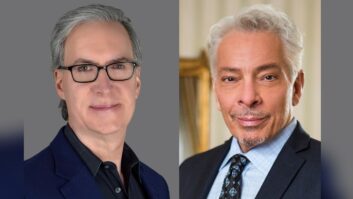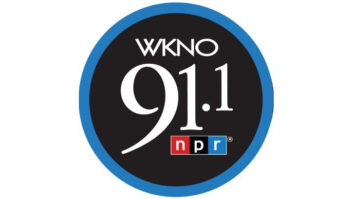This interview, part of a series of occasional Multicultural Media, Telecom and Internet Council commentaries in Radio World, is with MMTC President Emeritus David Honig and was conducted by MMTC Director of Communications Marcella Gadson.
Marcella Gadson:Last summer, MMTC concurred with broadcast industry proposals to allow most job recruitment to take place online, and to dispense with mid-term EEO reports. Have we walked back on our EEO advocacy?
David Honig: We were never unreasonable. Like FCC Commissioner Mike O’Rielly, we practice cost-benefit analysis. We know that the FCC has limited resources, so we want the agency to invest these resources where it counts. Internet recruitment is fine, because people of color are disproportionately likely to use the internet for job searches. And midterm EEO reports aren’t a meaningful deterrent to discrimination. What works are audits and enforcement — two areas in which the FCC has failed miserably.
MG:How do broadcasters go about discriminating? How does it happen?
DH: It’s well-documented in the FCC’s case law: discrimination happens when broadcasters recruit by “word-of-mouth from a homogeneous workplace.” What does that mean? It means that the station already has no minorities in their workplace, and it fills job openings almost entirely by asking the staff to refer “people they know” for interviews. As a result, for decades, minorities have been shut out regardless of their qualifications, because current staff refer people from their own circles. Since 1980, the FCC has recognized that this practice of word of mouth recruitment from a homogeneous workplace is “inherently discriminatory;” and since 1969 the FCC has also recognized that intentional discrimination is supposed to result in the loss of a broadcast license. We’re still waiting for the FCC to take away a single license for discrimination, however.
MG: Some industry leaders claim that broadcasters seldom discriminate anymore.
DH: How would they know? The FCC doesn’t even maintain a database on minority and women employment anymore.
MG:Do most broadcasters discriminate?
DH: I know most of the major group CEOs, and most of them truly make an effort not to discriminate. Some go to great lengths to avoid discrimination. But for a few, it’s not a priority. And the result is that highly talented, motivated, diverse young men and women simply “vote with their feet” and make their careers in creative industries that are more welcoming to them. That’s not good for our millennial-starved industry.
MG:But if the industry were so awful, the argument goes, how do we explain the huge successes of people such as Oprah Winfrey and Cathy Hughes?
DH: Oprah and Cathy each have one of the nation’s 800 cable channels, and Cathy has the eighth largest radio broadcaster. If they were white men, they’d be the presidents of ABC and CBS.
But let us suppose, for the sake of argument, that 99% of broadcasters do not discriminate and only one percent of broadcasters do. That one percent would amount to about 170 broadcasters. To put that in perspective, let us ask this:
Would the IRS tolerate 170 tax cheats among 17,000 businesses? Would a town of 17,000 people tolerate 170 polluters?
In other words, a “little” discrimination pollutes the whole pond.
Or suppose “only” 170 out of 17,000 airline passengers got dragged off an airplane because of their race.
No decent American would fly on that airline anymore. Shouldn’t we be just as outraged if 170 employers are denying minorities the career they went to college to study for?
How decent do we want our broadcasting industry to be?
Is it acceptable that Fortune magazine’s 2017 survey of America’s 100 “Best Workplaces for Diversity” lists only one media company for minorities — Comcast NBCUniversal?
Is it acceptable that DiversityInc.com’s May 2017 survey of “Top 50 Companies for Diversity” also lists only two — Comcast NBCU and Disney?
Most Denny’s restaurants always served all customers equally and with grace. But a few didn’t. Remember when the Annapolis Denny’s didn’t serve six Secret Service agents when they showed up for breakfast before going to the stadium to protect the President at the Army-Navy Game? Feels like it was just yesterday, right? But it happened in 1999. We remember it as “just yesterday” because of how disgusting it was.
Most broadcasters do a tower drive-by every evening to be sure the lights are on. But if even one broadcaster forgot to do this and a plane hit the tower, our industry wouldn’t live it down for years. Remember Air Florida? ValuJet? One crash took down each airline.
The EEO rule is in a category with the tower lighting rule: a few violations carry a huge multiplier effect, damaging the competitiveness of the industry by diminishing its credibility in the public eye. In the case of broadcasting, a buzz that there is unremedied discrimination is sure to frighten impressionable college freshmen away from broadcast majors and into other pursuits. It would be little comfort to them to learn that “only” 170 broadcasters discriminate.
If discrimination is regarded as something minor that happens to other people, it will be seen as a set of burdensome paperwork rules from which relief is needed. But that is shortsighted. If a CEO regards discrimination as something awful that could happen to his or her daughters, if discrimination is regarded as a moral abomination as well as an economic drag on the industry, then it must be ended yesterday, and that’s not soon enough.
MG:Why is this the FCC’s job?
DH: Only the FCC has the resources, the expertise, and the congressional mandate to handle this job. Further, the FCC’s structural and engineering rulemakings often define the broadcast employment market. In many small radio markets, there are only two viable broadcast employers. Suppose one of those employers discriminates. A broadcast professional unfortunate enough to be living in that market might be well-advised not to invest in a house, in case she is laid off by the nondiscriminating employer. The FCC ought to care enough about broadcast employees to ensure that they shouldn’t have to leave town to work because some broadcaster gambles that it can violate the FCC’s rules and nothing will be done about it.
MG: Whose move is the next move?
DH: The FCC’s, of course. The famous MM Docket 98-204 — the broadcast and cable EEO docket — was fully pled in 2004. Future broadcasters entering kindergarten when the record closed are now in their freshmen year in college, ready to decide whether to major in broadcasting. And they’re waiting …







